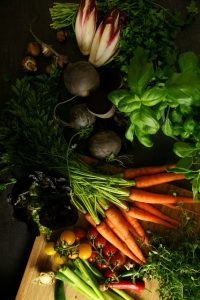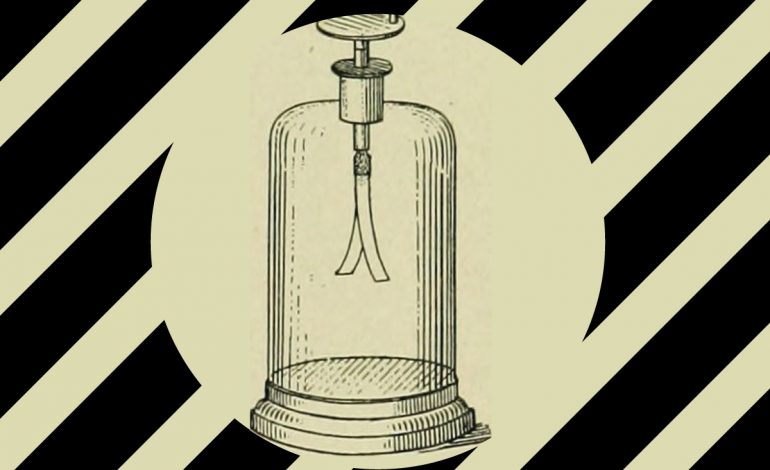A plant-based diet may help prevent many types of cancer. The vegan diet focuses on whole foods. It is one of the healthiest diets and has been shown to provide protection against cancer, heart disease, diabetes, behavioral disorders, and other chronic diseases.

Diets rich in fruit and vegetables can help prevent breast cancer by lowering the chance of getting breast tumors that are hormone-receptor-positive. Studies suggest eating type 2 diabetes risk-lowering diets, such as the Mediterranean diet, can lower the chances of developing pancreatic cancer. Likewise, eating more fat from plant sources helps prevent colon and rectal cancers from forming.
What is a plant-based diet?
Plant-based foods cover all food or drink sources derived from plants. These include vegetables, fruits, seeds, and nuts. A vegan diet prohibits any food or drink products derived from animals (i.e., milk, eggs and their derivatives, honey, meat). This excludes other forms of meat such as poultry and fish.
A vegan diet is an all-inclusive approach to eating that focuses on whole foods. The body naturally produces all the nutrients it needs to function properly. It has been established that a plant-based diet is a healthy way of eating. A vegan meal plan including these supplements will still provide all the important nutrients the human body requires.
How to avoid cancer with a plant-based diet?
Not all plant-based diets are vegan. Some of them may exclude items from the animal source food group, such as eggs and dairy products, but contain items from another group that may be animal-derived. For example, the Mediterranean Diet excludes eggs and dairy products. However, the seafood component in this diet may not be a vegan source. Therefore, it is important to know the category of the plant-based diet being followed to see if it is a vegan or non-vegan one. In some cases, a person can follow both.
Are plant-based diets safe for everyone?
Everyone can use plant-based diets. However, it is essential that you have a healthy individual and consult your doctor before starting such a diet plan. Those suffering from other medical conditions like diabetes and obesity should consult their health care provider before shifting to plant-based diets, as these conditions may still occur even after a dietary change. If a person has a history of cancer in the past or current, further research and consultation with a medical practitioner should be done before switching to a plant-based diet.
Vegan diets can prevent cancer if they are healthy in nature. The vegan diet should include whole foods such as fruits, vegetables, whole grains, legumes, nuts, and seeds. Vegan diets should also include essential fatty acids like linoleic acid (omega-6) and alpha-linolenic acid (omega-3). These fatty acids are found in plant sources such as chia seeds, flaxseeds, or walnuts.
Supplementation with vitamins and minerals is important in a vegan diet. Supplements such as vitamin B12 and omega-3 fatty acids can help maintain good health while on the vegan diet. Vegan diets are especially beneficial for children as they are generally rich in fiber, phytochemicals, antioxidants, and several other nutrients. For pregnant women, the vegan diet is also beneficial as it provides essential nourishment to both the mother and the fetus. A plant-based diet can also be used by athletes who want to gain strength or lose weight through training.
Are there other diets that prevent cancer?
Yes, there are other diets that prevent cancer. However, the vegan diet is one of the best ones as it does not involve eating animal products. Other diets like the Mediterranean Diet and Hormone-Receptor-Positive Breast Cancer (HRC) diet are also proven to decrease the chances of getting several types of cancer. The risk of colon cancer was found to be 38% lower in those on a vegetarian diet, while the risk of colorectal cancer was lowered by 45%.
It has been argued that a balanced vegetarian diet with more legumes, nuts, fruits, and vegetables can also reduce colorectal tumor growth. The same vegan diet that has been found to prevent pancreatic cancer also reduces the risk of prostate cancer. A 2014 study of over 16,000 participants found that a higher intake of fruit and vegetables decreased the chances of developing prostate cancer by 44%.
In addition to hormone-receptor-positive breast tumors, there is a risk for colorectal and pancreatic cancer in individuals with celiac disease or diabetes. High intakes of caffeinated beverages have been shown to increase the risk for liver tumors in those with cirrhosis. Women’s risk for ovarian and endometrial cancers is increased by smoking, alcohol use, and being overweight or obese. In addition, the risk of pancreatic cancer is increased by smoking, chronic pancreatitis, and being overweight.
There are various diets that prevent different types of cancer, but the vegan diet includes whole foods that can be used by everyone while enhancing your health and well-being.
Benefits of a plant-based diet
A plant-based diet is an aid to overall good health as it will improve your natural well-being through the intake of essential vitamins and micronutrients. The vegan meal plan includes essential nutrients like vitamin C, K, calcium, and iron, which are commonly found in fruits and vegetables. Some of these nutrients will also be found in supplements or processed foods with their added vitamins and minerals to aid the human body’s functions.
The vegan diet can help you prevent heart disease and high blood pressure as plant-based foods are low in saturated fat and cholesterol. Plant-based foods are also high in potassium, magnesium, and dietary fibers that can lower the risk for stroke.
The vegan diet can also reduce the risk of type 2 diabetes and obesity as it is rich in fiber. The vegan meal plan helps control fats and sugar intake, which helps stabilize insulin levels. The vegan diet provides essential vitamins and minerals, reducing cancer risk due to environmental factors like pollutants or cigarette smoke.
How can vegan diet help with weight loss?
It is normal to experience weight fluctuations throughout your lifetimes. Weight gain can be caused by an unhealthy lifestyle and some medical conditions. The vegan diet provides an easy way to burn calories without adding additional fat or sugar. When you have a restrictive diet, it can cause people to binge or binge eat days or weeks prior to their actual diet break. This is why a plant-based diet can be beneficial for those who want to lose weight, as the vegan meal plan is not restrictive in any way.

The vegan meal plan contains healthy fats from nuts and seeds and vegetables and fruits that are naturally very low in calories. This ensures that you are getting essential nutrients without adding extra calories. A vegan diet will also help you to keep track of the number of calories you consume in a day instead of just focusing on what foods you can eat or not eat.
A plant-based diet is a healthy way to lose weight and can be very satisfying. You don’t have to cut out any food groups, increase exercise, or count calories. A vegan meal plan will provide all the essential nutrients your body needs in order for you to lose weight gradually and safely without going hungry.
The vegan meal plan is also rich in dietary fiber, which can help maintain a healthy and balanced weight. The essential nutrients in the vegan diet balance out bad cholesterol and triglycerides linked to heart disease and obesity. A healthy balanced weight has been shown to reduce the risk for certain cancers and Parkinson’s disease.
A vegan diet can be used as part of your weight loss plan without being restrictive or making you feel weak. This type of diet focuses on whole plant-based foods to obtain important vitamins and minerals for healthy well-being. If a vegan diet is used in conjunction with an exercise program, it can help you lose weight faster and get back to a healthy balanced weight.
Protein intake on a plant-based diet
A plant-based diet does not provide enough protein for the human body to function properly. Protein intake can be found in nuts, seeds, and whole plant-based foods. When people talk about protein intake, they often refer to animal proteins derived from foods like meat, poultry, and fish. If you are thinking of having more protein on your vegan meal plan, you will need to look at the foods you eat daily and the amount of protein they contain.
There are many ways to get enough protein on a vegan diet. A plant-based menu will include nuts like peanuts and almonds, seeds like sesame and squash seeds, whole grains like chickpeas and quinoa, legumes like peas and beans, and fruits and vegetables. These foods have been shown to have the highest amounts of protein among plant-based foods. Young children who are growing fast should have a higher amount of protein than adults.
If you eat a healthy, balanced diet with whole food plant-based ingredients, you will get adequate protein without having to think about it too much. The key is variety in your meals throughout the day.
Choosing healthy food choices will also help you reach your protein needs in a safe and healthy way. There are many different types of vegan diets, so you have to ensure you get enough nutrition. The amount of protein normally found in plant-based foods is adequate for humans to live healthily on a vegan diet.
Many people who base their meal plan on a meatless diet are not eating enough calories, and this will cause them to lose weight too quickly. This can be caused by not eating enough food and eating too few calories. It can also be caused by eating too much unhealthy food which is not whole and lacks essential nutrients.
Protein intake requirements are different for men than women, as women have a lower amount of protein compared to men. This is why young children who are growing fast should have a higher amount of protein than adults. Children between the ages of 1 and 3 years old should have 47 grams of protein per day, while children between the ages of 4 to 8 years old should have 52 grams per day.
The recommended daily allowance (RDA) for protein intake can vary in different countries, but it is between 46 and 56 grams per day, depending on age as well as weight. A plant-based diet can help you meet your protein needs while not having to count calories or increase the amount of exercise.


